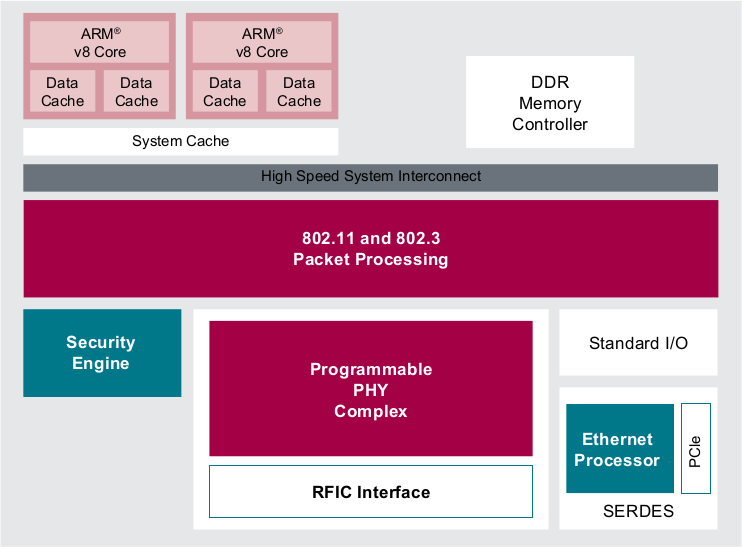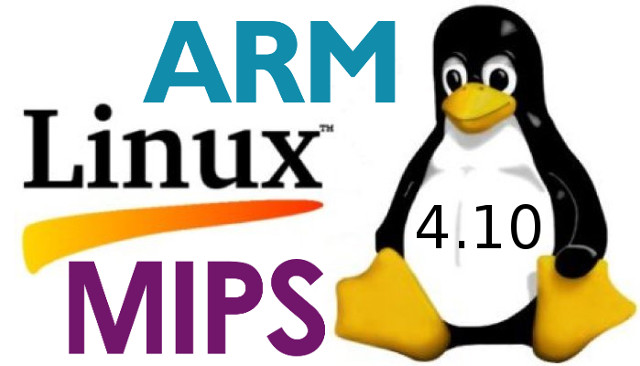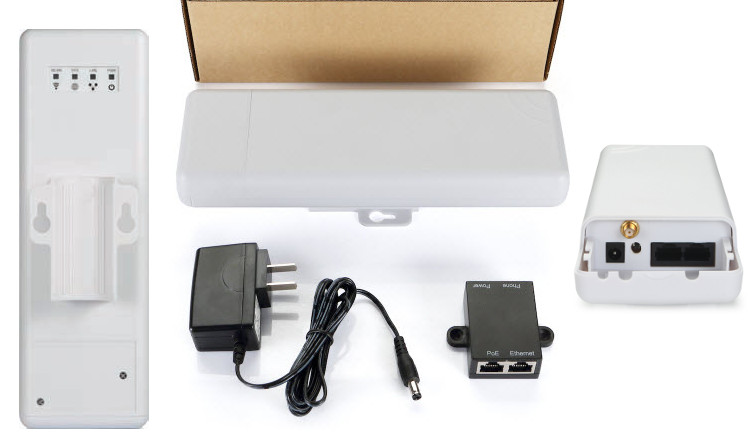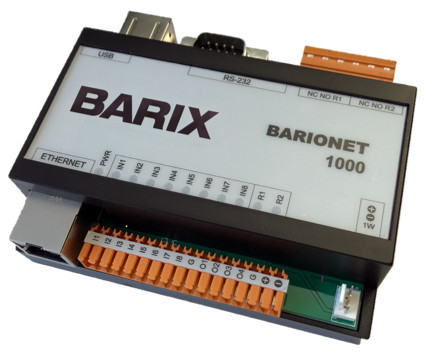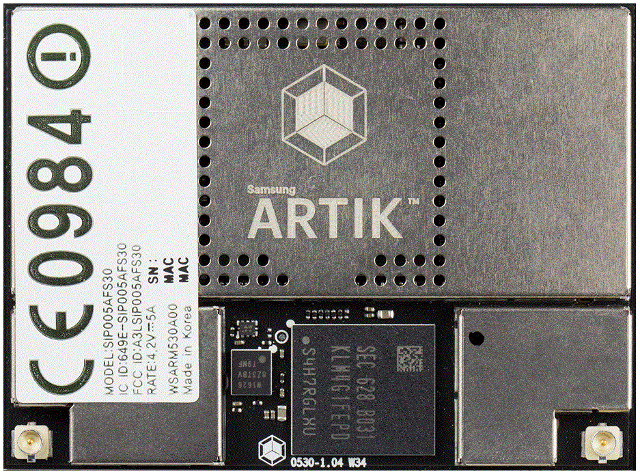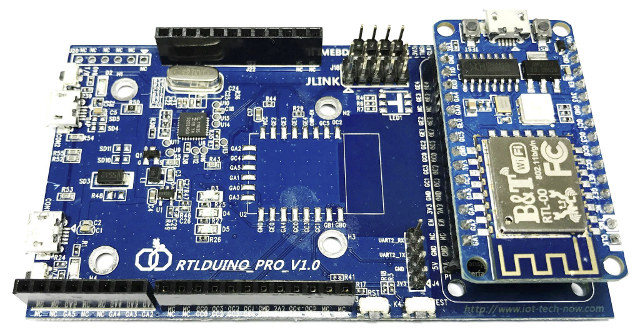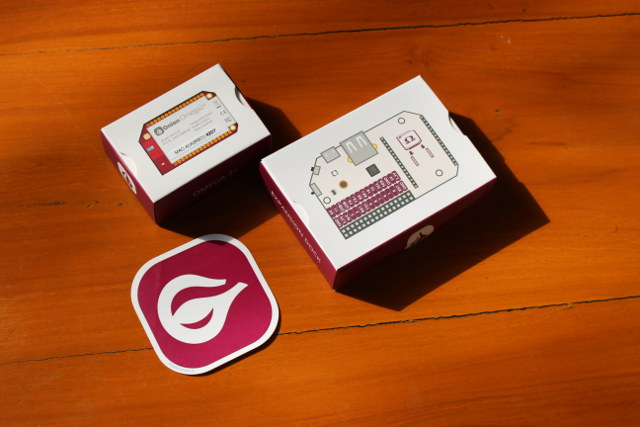NXP has recently announced QorIQ LayerScape LA1575 programmable wireless platform with two ARMv8 cores, and simultaneous multi-standard support for 5G, Wi-Fi (802.11 ac and 802.11ax) and Wireline systems for enterprise and high-end home gateways. QorIQ LayerScape LA1575 key features and specifications: Multicore ARMv8 Processors for user applications DDR4 with ECC Programmable accelerator engines for signal processing. Programmable low latency MAC layer processing engines Programmable high performance packet processing engines to over 10 Gbps Configurable cryptographic offload engines Simultaneous multi-standard support for 5G, Wi-Fi (802.11 ac and 802.11ax) and Wireline systems Multiple Ethernet interfaces including 10Gbps PCIe gen 3.0 Integrated Trust architecture Single source clocking The main benefit of this SoC is that is is programmable, so even if some standards evolve after the release, it can be re-programmed to reflects the changes in specifications. Just to refresh everybody’s memory: 5G is the successor of 4G/LTE scheduled to start (Wave 1) around 2018, […]
Linux 4.10 Release – Main Changes, ARM & MIPS Architectures
Linus Torvalds has just released Linux 4.10: So there it is, the final 4.10 release. It’s been quiet since rc8, but we did end up fixing several small issues, so the extra week was all good. On the whole, 4.10 didn’t end up as small as it initially looked. After the huge release that was 4.9, I expected things to be pretty quiet, but it ended up very much a fairly average release by modern kernel standards. So we have about 13,000 commits (not counting merges – that would be another 1200+ commits if you count those). The work is all over, obviously – the shortlog below is just the changes in the last week, since rc8. Go out and verify that it’s all good, and I’ll obviously start pulling stuff for 4.11 on Monday. Linus Linux 4.9 added Greybus staging support, improved security thanks to virtually mapped kernel stacks, […]
Dragino OLG01 Outdoor Single Channel LoRa Gateway Runs OpenWrt, Supports Passive PoE
Dragino Technology, a Shenzhen based startup focusing on the Internet of Things, had already designed LoRa shields & Hats for Arduino & Raspberry Pi boards which can be useful for LoRa nodes, but the company has now launched Dragino OLG01 LoRa gateway running OpenWrt that communicates with nodes over LoRa, and to the cloud using WiFi, Ethernet, or 3G/4G. Dragino OLG01 specifications: WiSoC – Atheros AR9331 MIPS processor @ 400MHz System Memory – 64MB RAM Storage – 16MB flash MCU – Atmel ATMega328P AVR MCU with 32KB flash, 2KB SRAM Connectivity 802.11 b/g/n WiFi with antenna 2x 10/100M Ethernet with support for passive PoE Optional 3G/4G module connected to internal USB socket (TBC) Semtech SX1276/78 LoRa wireless module + SMA connector (antenna not provided) up to 5~10 km range USB – 1x USB 2.0 host port Power Supply – 12V DC power jack or PoE Three models are offered with […]
22€ Olimex ESP32-EVB ESP32 Development Board Features an Ethernet Port and Relays
We already have a good choice of ESP32 development boards, but none of the ones I’ve seen make use of the Ethernet MAC interface found in Espressif ESP32 SoC. Olimex has changed that with their ESP32-EVB featuring ESP32-WROOM32 module as well as one Fast Ethernet port and two relays. Olimex ESP32-EVB specifications: Wireless Module – ESP32-WROOM32 module with 802.11 b/g/n WiFi and Bluetooth LE Wired Connectivity – 10/100M Ethernet RJ45 port External Storage – micro SD slot Relays – 2x 10A/250VAC relays Expansion 40-pin GPIO female header (2.54mm pitch) UEXT connector for sensors and modules Misc – 2x user buttons Power Supply 5V power jack LiPo charger and step up converter allowing ESP32-EVB to run from LiPo battery The company still have to write software samples, and do some testing to make sure the board work before going into mass production. Once everything is cleared, the board will be sold […]
Barionet 1000 DIN Rail Programmable I/O Controller Runs OpenWrt
Barix, a Swiss company specializing IP- based communications and control technology, has introduced a new Barionet programmable I/O controller with Barionet 1000, the first model of the company to run Linux, and in this case OpenWrt, and to offer WiFi and USB connectivity. Barionet 1000 specifications: Processor – Undisclosed System Memory – 64MB RAM Storage – 16MB flash Connectivity – 10/100M Ethernet, Wi-Fi 802.11 b/g/n; IPv4 & IPv6 support. USB – 2x USB Host Ports Serial – 1x DB9 RS-232 serial port User programmable I/Os 2x relay outputs (30 VDC max, 5 A) 4x open collector digital outputs (4 x 24 VDC, 0.3 A) 8x contact closure inputs (0 – 15 V), including 4x 12-bit analog inputs (0 – 15 V) 1-wire interface for 18DS20 temperature sensor Misc – 11 LED status indicators Power Supply – 9 to 30V DC (2.5 Watts max) Dimensions – 103mm x 85mm x 31mm; […]
Samsung Introduces Artik 530 IoT Module & Development Kit with WiFi, BLE, and Zigbee/Thread
Samsung unveiled Artik 1, Artik 5, and Artik 10 IoT modules & development board families in 2015, but since then they dropped the Artik 1 family, and instead launched Artik 0, Artik 5, and Artik 7 modules and boards late last year. More recently the company canceled the more powerful Artik 1020 development board, but the Artik project is still going on, as they’ve just added Artik 530 module & development kit to their Artik 5 family. Samsung ARTIK 530 module specifications: SoC – Unnamed Quad core ARM Cortex A9 processor @ 1.2 GHz with a 3D graphics accelerator System Memory – 512 MB DDR3 Storage – 4GB eMMC v4.5 flash Connectivity – Dual band SISO 802.11 a/b/g/n WiFi, Bluetooth 4.2 LE + Classic, 802.15.4/Zigbee/Thread, 10/100/1000M MAC (external PHY required) Other Interfaces and peripherals Camera – 4-lane MIPI CSI up to 5MP (1920×1080 @ 30fps) Display – 4-lane MIPI DSI […]
RTL8710 Ameba Arduino Development Board and Ameba Arduino v2.0.0 SDK Released
We’ve already seen a NodeMCU lookalike board called RTLDuino based on Realtek RTL8710AF ARM Cortex M3 WiSoC earlier this month, that can be programmed with a community supported Arduino port also called rtlduino via a JLink SWD debugger, but now Realtek has just launched Ameba RTL8710 Arduino board, and released Ameba Arduino v2.0.0 SDK which brings official Arduino support to RTL8710AF platforms. There appears to be two versions of the development kit: RTLDUINO_PRO_V1.0 and REALTEK-AMEBA_RTL8710_V2.0, but based on the user manual they seem to be identical, and as you can see from the above picture, it includes a baseboard and the aforementioned RTLDuino board. RTL8710 Ameba Arduino HDK key features: SoC – Realtek RTL8710AF ARM Cortex-M3 MCU @ 83 MHz with 802.11 b/g/n WiFi, hardware SSL engine connected to the baseboard via: RTLDuino board through female header B&T RTL-00 module soldered on module footprint USB – 2x micro USB ports, […]
Getting Started with Onion Omega2+ LEDE WiFi IoT Board and Expansion Dock
Onion Omega2 LEDE (OpenWrt fork) WiFi board is powered by Mediatek MT7688 MIPS SoC, targets IoT projects, and sells for as low as $5. There are actually two versions: Omega2 with 64MB RAM, 16MB flash, and Omega2+ with 128MB RAM, 32MB flash and a micro SD slot. Onion sent me the latter for review, together with an expansion dock that allows powering up the board though USB , and adds a USB host port, an RGB LED, buttons, and access to GPIO via a female header. In this quick start guide, I’ll start by taking some unboxing pictures, and then report my experience following the documentation to configure the board, blink the RGB LED, and control a LED on a breadboard using a GPIO from the header. Onion Omega2+ Unboxing I received the two boards in their respective package, and which are both stored in anti-static bags. Let’s check Onion […]


